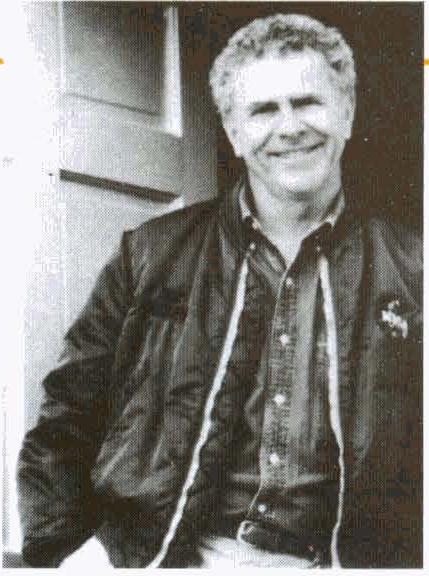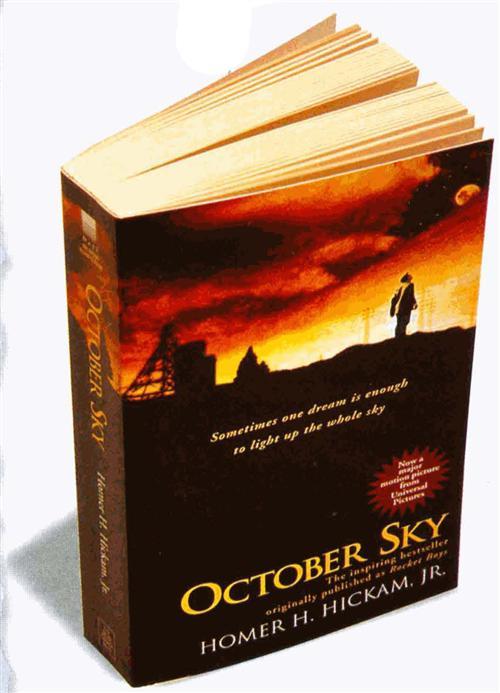
Memoirs are tricky things to write and, as in all things, timing is everything. I don’t think my book October Sky (originally released in hardcover as Rocket Boys: A Memoir) would have been half so well received had I not waited until the era I wrote about had receded into a sort of timelessness. As it is, 40 years later, the story has been a phenomenon ever since I first penned a short article for Air & Space magazine telling the simple story of six boys who lived in a small West Virginia coal town and, at the dawn of the space age, decided to build their own rockets. Within a year, I had a contract with Universal Studios for a major motion picture to be based on a book I was still writing.
Timing, however, isn’t absolutely everything. Here are some other tips I learned in the process of writing October Sky.
1. Know your destination. I think it would have been catastrophic if I’d just started writing October Sky without a specific idea as to where I was going. If you are not certain what your story is, you’ll quickly lose your readers. When I wrote the first paragraph, I laid out the story and the destination to not only my readers but to myself:
Until I began to build and launch rockets, I didn’t know my home town was at war with itself over its children, and that my parents were locked in a kind of bloodless combat over how my brother and I would live our lives. I didn’t know that if a girl broke your heart, another girl, virtuous at least in spirit, could mend it on the same night. And I didn’t know that the enthalpy decrease in a converging passage could be transformed into jet kinetic energy if a divergent passage was added. The other boys discovered their own truths when we built our rockets, but those were mine.
Some critics have called this opening paragraph the perfect opener for a memoir. I never changed a single word of it after I wrote it but I still left plenty unsaid, enough to make the reader want to turn the page and see how I learned those “truths.”
2. Tell the truth but also tell a story. This simple admonishment seems often lost on memoir writers. A memoir, just as a novel, should have a plot with a beginning, middle and end. To make a story with a plot out of real life requires very careful judgment, choosing only those episodes in your life that keep the story on track.
In October Sky for instance, I could have written much about my proud position as head drummer in the school band. Had I chosen to write much about it, though, it might have interfered with the main thread of the story, which had nothing to do with high-school drumming.
This is not to say that having parallel threads in your memoir won’t work. I had four primary strands I kept interweaving: the building of our rockets, the tensions in my family my attempt to win the girl I loved, and the evolution of the little town of Coalwood. I moved between them interchangeably but always with the intention to have those threads wrapped tighter and tighter until they become as one. The story of my adventures as a drummer boy would have been a distraction.
3. Set your hook early. My years as a freelance writer for a variety of magazines taught me the importance of hooking the reader very early in the manuscript. A memoir is no different. To ruminate up front, or to
In October Sky, my hook was my family dynamics. For instance, after my grandfather, when I was 3 years old, told my mother that I was just like my father, I ended the first chapter with this paragraph:
Dad slapped open the screen door and came out on the porch as if to argue with her. Mom turned away from him and I saw his eyes, usually a bright hard blue, soften into liquid blots. I snuggled my face into her neck while Mom continued to rock and hold me, still singing her quietly insistent song: No you’re not. No you’re not. All through my growing up years, she kept singing it, one way or the other. It was only when I was in high school and began to build my rockets that I finally understood why.
The hook is set: what was the tension between my mother and father, and what was it about my rockets that finally let me understand it? Most readers will want to know.
4. Know when to start and when to quit.
A memoir writer is tempted to tell everything about their life from birth to the present. Sometimes that works, but most often, it goes too far. Carefully determine the timeframe of the story you want to tell and stick to it. If there’s enough interest, who knows? You might get to write a sequel! That’s what happened to me. There’s already a lot of interest in a sequel to Rocket Boys and I’m going to be happy to oblige.




